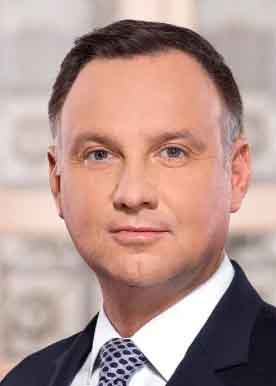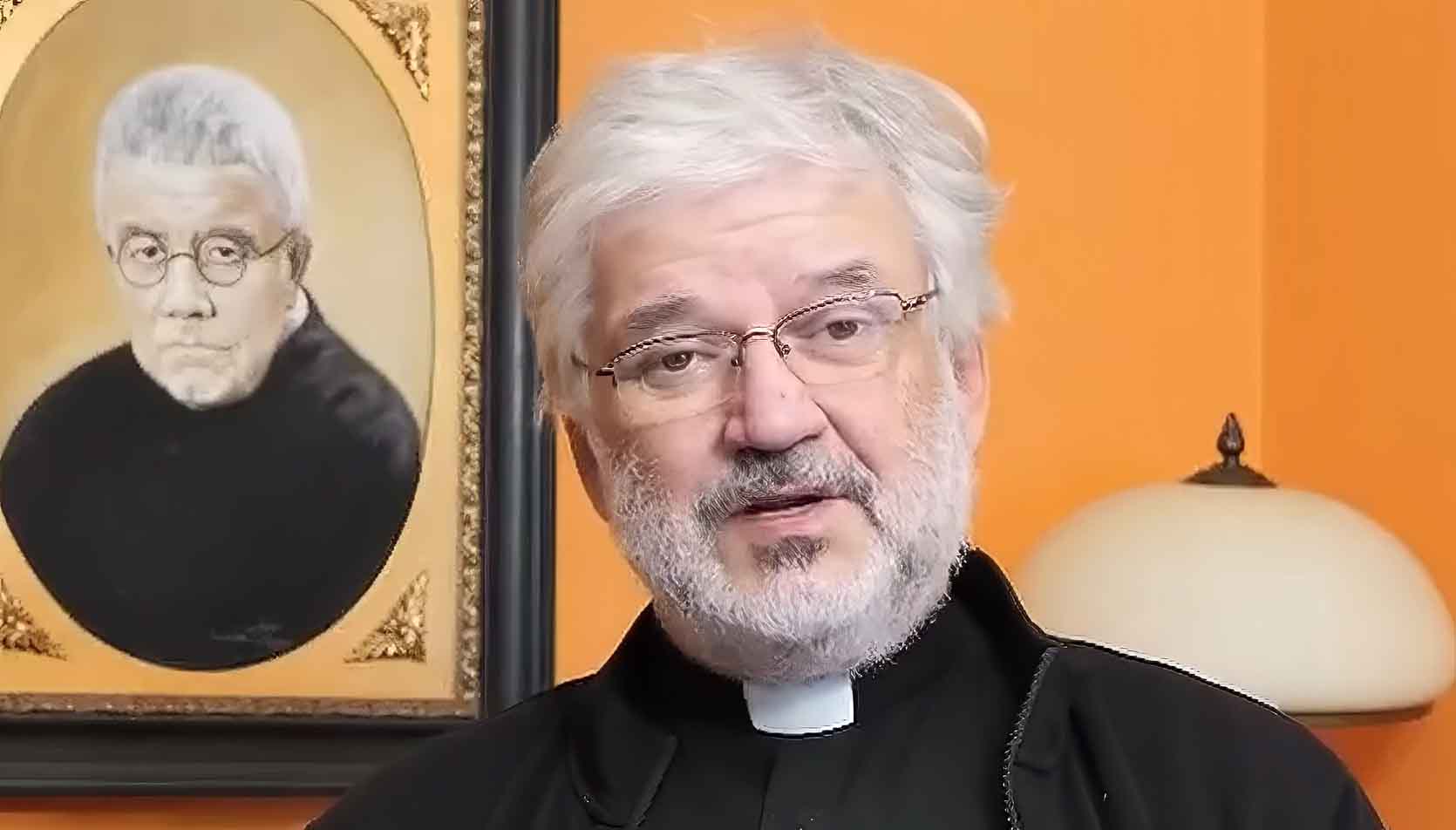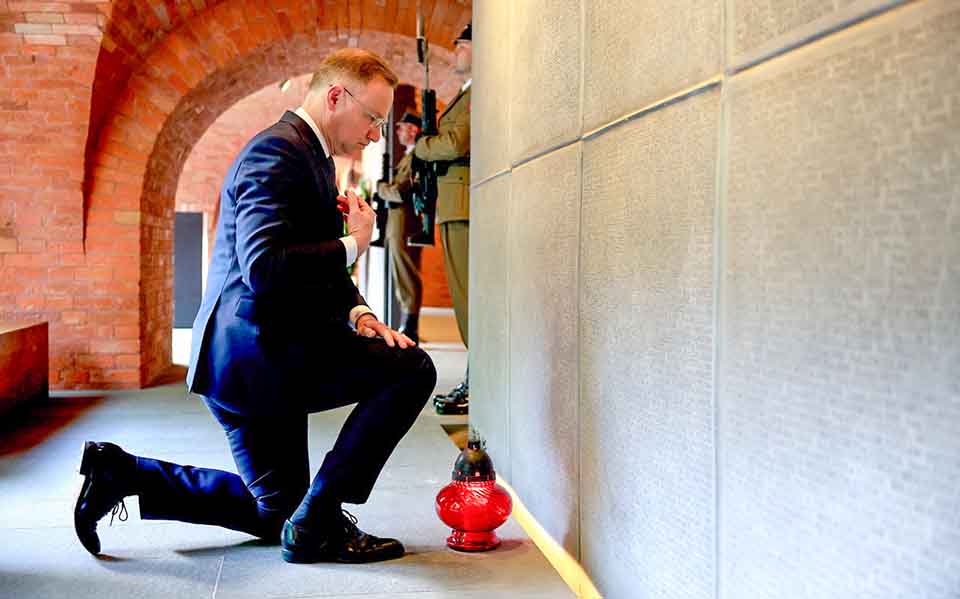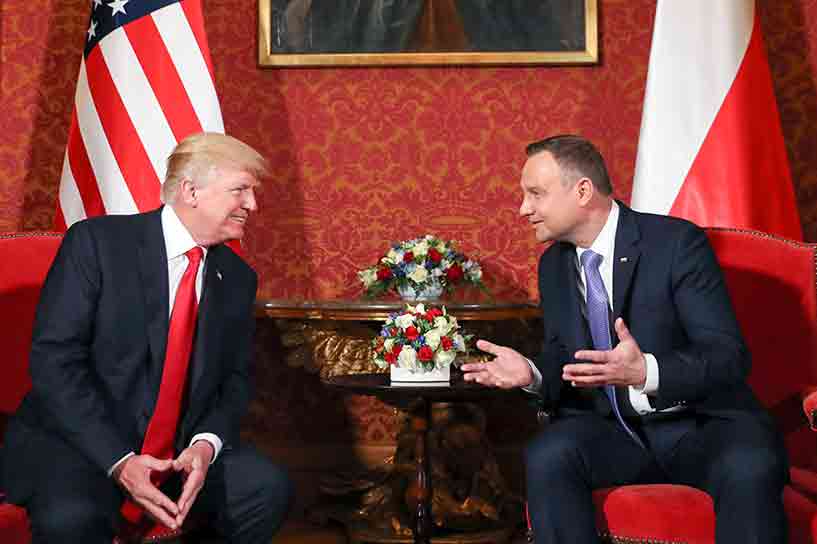Forty years ago, my homeland, Poland, as part of the Eastern Bloc, was under the rule of a communist dictatorship. In October 1984, state television reported the kidnapping of a charismatic preacher – Father Jerzy Popiełuszko – and that “lawless” officers of the Security Service, the political police of the red regime, were involved in the case. The priest’s body was soon found. Experts had no doubts: it was a murder preceded by torture.
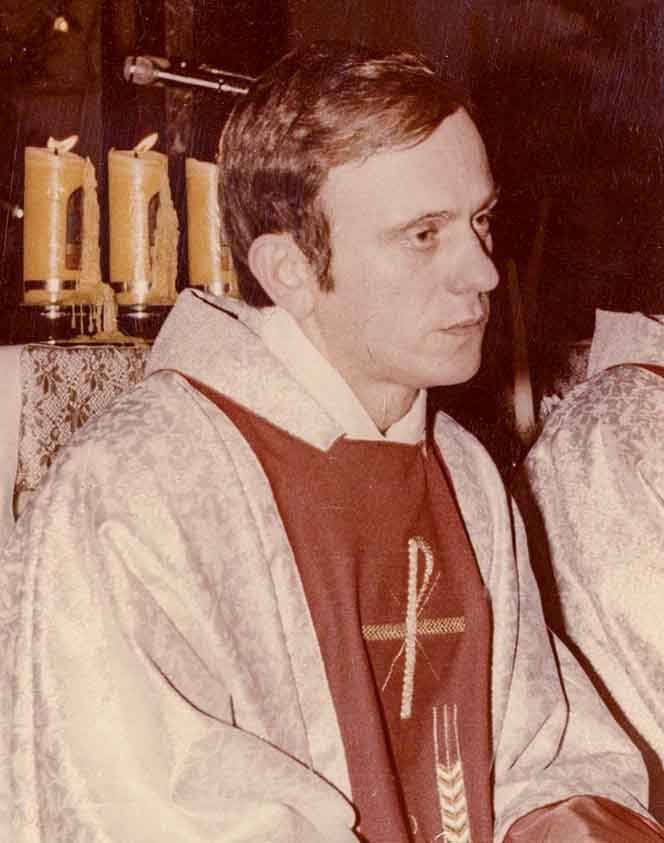
Source: Wikipedia
The news shocked Polish society. Over 600,000 people, including delegations of workers from factories all over the country, said goodbye to the murdered priest at the Warsaw funeral.
Who was the 37-year-old priest of the Archdiocese of Warsaw whose death so deeply moved millions of Poles? Why was he declared blessed by the Catholic Church in 2010?
To understand this, we must go back in time to World War II. On September 1, 1939, the German Third Reich launched an armed attack on the territory of the Republic of Poland. Then, under the Ribbentrop-Molotov Pact concluded on August 23 of that year, on September 17, Soviet troops attacked Poland, occupying a wide strip of our eastern lands. The Republic of Poland as a state fell, but as the soon-to-be-established Polish Underground State, it put up uninterrupted resistance to the invaders – in close cooperation with the Allies. Between November 1943 and August 1945, during conferences in Tehran, Yalta and Potsdam, the leaders of the United States of America, Great Britain and the Soviet Union agreed on the principles of a new order in Europe. They also decided the fate of Poland – a country that had been co-creating Western culture for a thousand years; a country that was the first to resist the armed invasion of the Third Reich and that not only never collaborated with Nazi Germany, but also supported the Allied forces with thousands of its soldiers on all fronts of the fight against the Nazis.
Unfortunately, under the arrangements of the Big Three, my homeland, although formally liberated, actually remained under Soviet rule. After the tragedy of the criminal German occupation, the end of World War II brought Poles not freedom and development, but communist enslavement, permanent garrisons of the Red Army, and colonial subordination to the empire with its capital in Moscow.
The communist governments based on dependence on the Soviets and their totalitarian ideology were the opposite of the ideals and aspirations most dear to Poles – such as a sovereign state, respect for Christian tradition and religious freedom, an economy based on private property and social solidarity, as well as the desire to make up for the delays caused by the destruction of the country by two world wars. Unfortunately, the fears of Polish patriots were confirmed. The effects of the introduction of communism in Poland were similar to those in other places in the world: political and economic exploitation by the USSR, an inefficient economy, widespread impoverishment and overwork, privileges of the idle "red aristocracy", systemic trampling on human rights and authentic national culture, severe censorship and a police state, show trials, bloody pacifications of workers' protests, murders and other crimes of the unpunished apparatus of repression.
Social life in Poland ruled by communists was poisoned by phenomena prophetically described by George Orwell in his novel with the telling title 1984. These included newspeak and doublethink, as well as public displays of hatred towards people branded by the authorities as “enemies of the people”. To be considered such an enemy, it was not necessary to call for the overthrow of the regime or directly criticize its errors and wickedness. It was enough to talk about obvious facts and use – in accordance with their original meaning – concepts such as freedom, justice, human and worker dignity, solidarity. It was enough to talk about the evil of the tyranny of fear and opportunism; about truth as a value not only in individual life, but also in collective life; about the Christian vision of society and love of the fatherland. It was enough to remain calm in the face of pressure and harassment, to pray publicly for persecuted and imprisoned oppositionists, to provide spiritual and moral support to people who were internally free.
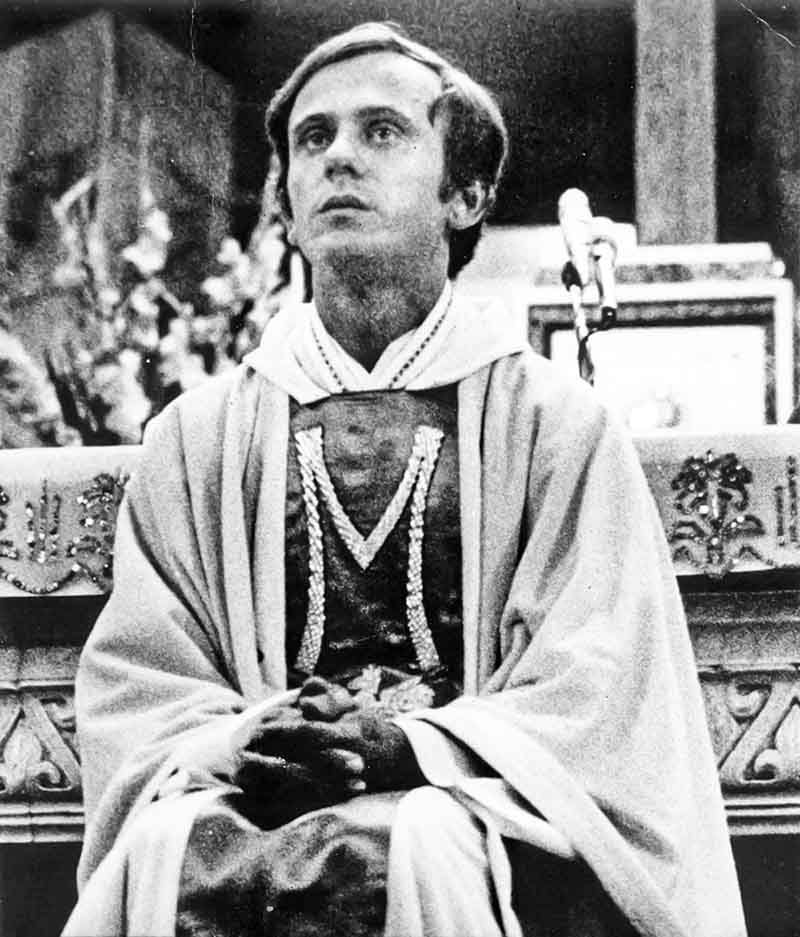
Father Jerzy Popiełuszko (Source: Wikipedia)
It was in such a reality that Jerzy Popiełuszko performed his priestly ministry. He was the chaplain of the nationwide Solidarity movement, which emerged in the wake of the mass strikes in 1980, was soon outlawed and continued his underground activities. Father Jerzy became a true authority and arouser of conscience for Poles, a hero embodying the nation's aspirations for freedom. Crowds came to his famous masses for the homeland. His fiery, uplifting sermons circulated throughout the country in the form of tape recordings and underground publications. His pastoral ministry in working class environments and the democratic opposition gained him the reputation of a spiritual guide and guardian fully devoted to his calling.
In response, the communist regime unleashed a campaign of slander, provocation and mockery against Father Popiełuszko. It resorted to attempts at intimidation and physical assault. And when this did not work, the brave priest was kidnapped, tortured and finally brutally murdered by three officers of a special unit of the Security Service, engaged in combating the Catholic Church in Poland. The circumstances of the crime have not been fully explained to this day, and the course of the investigation and trial still raises doubts. The perpetrators were released long before the expiration of their long prison sentences.
From the first days after his death, Father Jerzy Popiełuszko was treated in Poland as a martyr – a person who, through his attitude, testified to the heroic fidelity to the Gospel. Pope Benedict XVI ruled that the Solidarity chaplain died for his faith, for the Christian ideals of truth and love of neighbor. For risking his life, he brought religious strengthening to those who were oppressed – as people and as Christians.
However, the most important, universal and still relevant message of Father Jerzy were the words of St. Paul the Apostle from the Letter to the Romans: "Overcome evil with good". The priest always called for not responding to meanness, violence and inhumane treatment with meanness and violence. He warned that responding to evil with evil would force us to ask ourselves at the end what we have really gained, since by winning we have become similar to our persecutors.
He himself chose the path of sacrifice and dedication until the end for faithfulness to the values he professes.
I am convinced that the life and work of Father Jerzy Popiełuszko, his posthumous victory over the communist system of lies and oppression, and the call to "overcome evil with good" should become a subject of reflection for all who want to make the modern world a better place. The figure of Father Jerzy brings to the world a message of hope and the sense of persistent striving for peace and justice.
The text is part of the "Telling the World of Poland" project addressed to the world's media.



